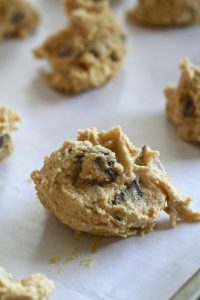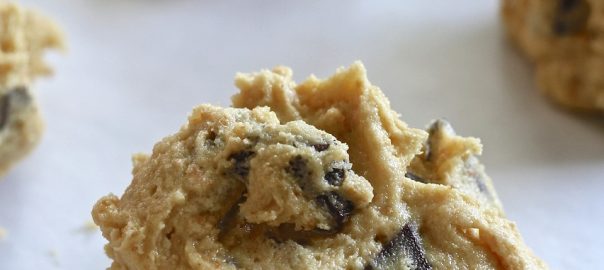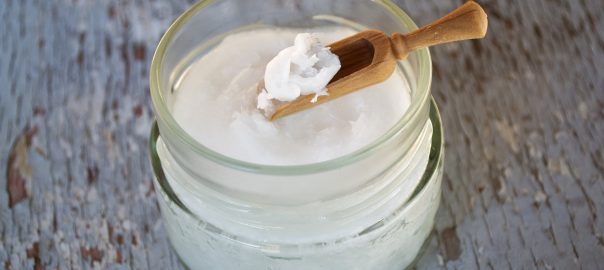Update: A new article claiming that coconut oil is “pure poison” has hit the newsfeed. And the media is going into a frenzy, it is bad for you, is it good for you? This whole ping-pong effect has consumers feeling overwhelmed, confused, and worried about their health. I'm going to once again state my position. Coconut oil is not a harmful fat. There are too many studies out there showing the benefits of consuming medium chain triglyceride fatty acids (see the reference section below).
An article in USA Today on coconut oil has created a flurry of concern when it comes to what to eat. A supposedly new report from the American Heart Association (AHA) shows that coconut oil isn't good for you, was never good for you, and you should stop eating it immediately. This has gotten picked up by several different media sources (because they love soundbytes — little news headlines that generate interest but don't provide in-depth information). The AHA recommendation states, “Because coconut oil increases LDL cholesterol, a cause of CVD [cardiovascular disease], and has no known offsetting favorable effects, we advise against the use of coconut oil.”
Given the increased number of people who are consuming coconut oil this has caused a lot of confusion. It also generated a lot of people reaching out to me wanting to know what to do. I spent a lot of time during the first two days after this article came out answering emails and responding to social media posts. Here is my rebuttal of the article(s). Let's start with the short answer: Coconut oil is healthy for you, I will continue to eat it, and I continue to suggest it as a healthy fat. Now, as they say, for the rest of the story.
Switching fats
I find it somewhat odd that this “news” comes out in the same timeframe as another article reporting on an advisory from the American Heart Association, Why you should switch from butter to margarine: Simple change could be as good as statins for your heart. Margarine is a trans-fat, it's hydrogenated or partially hydrogenated to make it solid at room temperature. Trans-fats are harmful for cardiovascular health and were removed from the FDA's Generally Recognized As Safe list back in 2013. With regard to consumption of trans-fats the AHA clearly states, “The American Heart Association recommends cutting back on foods containing partially hydrogenated vegetable oils to reduce trans fat in your diet.” So I find it very curious that they appear to be once again encouraging margarine consumption while dissing a source of healthy fat.
What is coconut oil?
Before we pick apart the headlines let's start by identifying what coconut oil is. It's made from the white, fleshy part of the coconut, sometimes referred to as the meat. The best quality is made from fresh coconut (as opposed to dried) which is expeller pressed. Cold pressed (instead of heat pressed) is even better because it retains more of the nutrients. Coconut oil contains caprylic acid, capric acid, and lauric acid. These medium chain fatty acids provide a number of benefits including:
- antibiotic, antimicrobial and antifungal
- highly effective against candida
- highly digestible and supportive for ulcers and ulcerative colitis
- not easily stored as fat
- supportive for brain health
- beneficial for skin issues such as dandruff, dermatitis, eczema, and psoriasis (taken internally and externally)
- prevents bone loss
- helpful for weight loss
- beneficial for cardiovascular health
Due to its saturated nature, coconut oil changes from liquid to solid depending on ambient temperature. There is a form of coconut oil on the market referred to as MCT, short for Medium Chain Triglycerides, which is liquid all the time. This does not have the same profile as ‘regular' coconut oil. MCT oil is more concentrated and has different proportions for the different medium chain fatty acids.
The science
Here's why these scare-tactic articles about coconut oil fall short for me. They are not based on new studies. In fact, all the new data coming out shows the health benefits of coconut oil. If you read the recent negative articles carefully you can see that the advisory they quote is based on a review of previous data. They've decided, however, to rename it and call it an American Heart Association Presidential Advisory. It doesn't matter what they call it, it's still not new information. Not only is this old information, it's information that has been debunked. Here's the cliff notes version of what you need to know:
- Saturated fat – Dr. Ancel Keys is the man at the center of the whole heart disease/saturated fat issue. He essentially cherry-picked the data to fit his theory that consumption of saturated fats increased cardiovascular disease. (In case you didn't know, cherry picking your data is a bad thing for a researcher.) However, his legacy lives on with scary articles about how bad saturated fat is for us. This continues despite newer studies showing that saturated fat is not as harmful as we have been led to believe.
- Hydrogenation – Many of the studies that were done examining the effect of saturated fats on cholesterol levels used hydrogenated coconut oil. That is, they added hydrogen to make it always solid, in effect turning coconut oil into a trans-fat. The cold-pressed, extra virgin, organic coconut oil that you should be buying and consuming has no trans-fats. These studies do not apply and yet they are repeatedly trotted out and cited as a reason to avoid consuming coconut oil
- Cholesterol – The articles claim that coconut oil increases cholesterol, especially LDL. However, we can't focus just on one factor, LDL, as a risk for cardiovascular disease. In fact, studies have found cholesterol ratios and HDL levels improved by consuming coconut oil. What's more important is the size of your lipoprotein particles. Lots of small dense particles are more harmful than a number of fewer, larger particles. To get to the true value of heart health you need to look deeper than just LDL. You need to consider the ratio of HDL to LDL, your triglycerides, and your LPP (lipoprotein particle) values.
- Inflammatory – Coconut oil is not an inflammatory food. In fact, it has been found to be the opposite. While some saturated fats are inflammatory, coconut oil does not fall into this category. Side note: According to the National Cancer Institute the largest source of saturated fat in the American diet is cheese and pizza.
- Fats – Fats are healthy, and a wonderful source of energy. That's so important I'm going to say it again. Fats are healthy! We need fat. Your brain is made up of 70% fat, your vital organs are surrounded by a protective layer of fat, your hormones are made from fat, and without fat you cannot absorb and utilize the fat-soluble vitamins A, D, E, and K. It's also important to note that fat slows down how fast your body breaks down and absorbs sugar.
- Heart disease – Low fat was NEVER the answer to heart disease. In fact, we now know that the opposite is true. The more we shifted to low fat the more heart disease increased. Leading to more people on statin drugs with diabetes and obesity. Replacing fat with chemicals and carbohydrates is exactly the wrong answer to being healthy. And the available studies continue to support this fact.
About health and coconut oil
Can you eat too much coconut oil? Yes, you can. Even good-for-you foods can be unhealthy when consumed to excess. How much is too much? Unfortunately, the answer is “that depends.” On what? On you and your bio-individual body. Issues may include whether or not you have food sensitivity issues to coconut or if you have health issues that impair your ability to break down fat, any fat, including the healthy ones. These and more may contribute to health issues.
Coconut oil is not the villain that it's being portrayed to be. And I'm not the only one who feels this way. Consider this quote by Dr. Mark Hyman,“First, there is not a single study showing that coconut oil causes heart disease. Not one. Second, the whole case against coconut oil is founded on a hypothesis that has been proven wrong”.
The fats that you want to avoid are the refined vegetable oils such as corn, canola, or soybean oils. Leaving aside the fact that these are genetically modified, they are also highly refined in a process that uses bleach, deodorizers, de-waxing chemicals, and solvents. Not something you want to eat for health.
So yes, you can, eat coconut oil. I will continue to eat coconut oil as part of a healthy diet. It's important to note, however, that when eating coconut oil you want to choose cold-pressed, expeller-pressed, organic, extra virgin for optimal benefit. Coconut oil can be used for cooking or baking, it's great in smoothies (melt it first for proper blending), and it gives a wonderful boost when you add a little to a cup of tea or coffee.
Remember that eating well to be well includes a balanced, varied, whole food/real food nutritional plan. General guidelines suggest that 30% of your daily diet should come from healthy fats. These include avocados, butter and ghee, coconut oil, olive oil, and nuts and seeds (preferably raw and soaked). In general, it appears that most folks can reasonably consume between 1-4 tablespoons of coconut oil per day.
References:
Arunima, S., and Rajamohan, T. Effect of virgin coconut oil enriched diet on the antioxidant status and paraoxonase 1 activity in ameliorating the oxidative stress in rats — a comparative study. Food Funct. 2013 Sep;4(9):1402-9. doi: 10.1039/c3fo60085h.
Cardoso, D.A., et al. A coconut extra virgin oil-rich diet increases HDL cholesterol and decreases waist circumference and body mass in coronary artery disease patients. Nutr Hosp. 2015;32(5):2144-2152 ISSN 0212-1611 • CODEN NUHOEQ S.V.R. 318. https://www.researchgate.net/profile/Glorimar_Rosa/publication/283576816_A_coconut_extra_virgin_oil_rich_diet_increases_HDL_cholesterol_and_decreases_waist_circumference_and_body_mass_in_coronary_artery_disease_patients/links/56434e3408aef646e6c69a5b.pdf
Deol P., et al. Soybean oil is more obesogenic and diabetogenic than coconut oil and fructose in Mouse: Potential Role for the Liver. PLoS One. 2015 Jul 22;10(7):e0132672. doi: 10.1371/journal.pone.0132672. eCollection 2015.
DiNicolantonio JJ. The cardiometabolic consequences of replacing saturated fats with carbohydrates or Ω-6 polyunsaturated fats: Do the dietary guidelines have it wrong? Open Heart 2014;1:e000032. doi: 10.1136/openhrt-2013-000032. http://openheart.bmj.com/content/1/1/e000032.full
Eyres, L, et al. Coconut oil consumption and cardiovascular risk factors in humans. Nutr Rev (2016) 74 (4): 267-280. DOI: https://doi.org/10.1093/nutrit/nuw002. Published: 05 March 2016. https://academic.oup.com/nutritionreviews/article/74/4/267/1807413/Coconut-oil-consumption-and-cardiovascular-risk
Gavin, James E. Optimizing Diagnosis and management in mild-to-moderate Alzheimer's Disease. Neurodegener Dis Manag. 2012 Jun; 2(3): 291–304. doi: 10.2217/nmt.12.21. https://www.ncbi.nlm.nih.gov/pmc/articles/PMC3437664/
Hayatullina Z. et al., Virgin coconut oil supplementation prevents bone loss in osteoporosis rat model. Evid Based Complement Alternat Med. 2012;2012:237236. Epub 2012 Sep 16. https://www.ncbi.nlm.nih.gov/pubmed/23024690
Lei, T., et al. Medium-Chain Fatty Acids Attenuate Agonist-Stimulated Lipolysis, Mimicking the Effects of Starvation. Obesity. Volume 12, Issue 4 April 2004. Pages 599–611. http://onlinelibrary.wiley.com/doi/10.1038/oby.2004.69/full
Selverajah, M., et al. Anti-ulcerogenic activity of virgin coconut oil contribute to the stomach health of humankind. TANG Vol.6 No.2, 2016.5, 12-18 (7 pages) http://www.dbpia.co.kr/Journal/ArticleDetail/NODE06688140
Siri-Tarino, PW, et al. Meta-analysis of prospective cohort studies evaluating the association of saturated fat with cardiovascular disease. March 2010 vol. 91 no. 3 535-546. doi: 10.3945/ ajcn.2009.27725. http://ajcn.nutrition.org/content/91/3/535
Vysakh, A. et al. Polyphenolics isolated from virgin coconut oil inhibits adjuvant induced arthritis in rats through antioxidanta and anti-inflammatory action. Int Immunopharmacol. 2014 May;20(1):124-30. doi: 10.1016/j.intimp.2014.02.026. Epub 2014 Mar 6.




